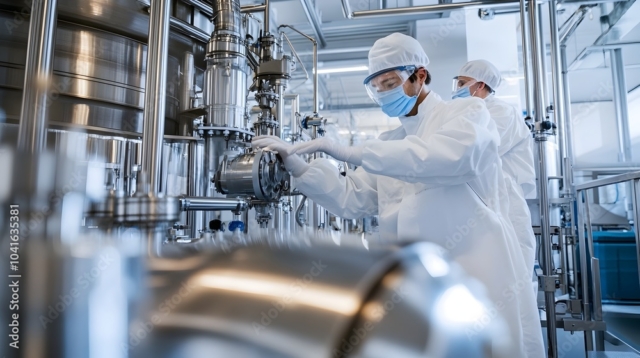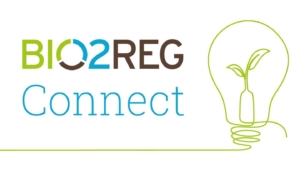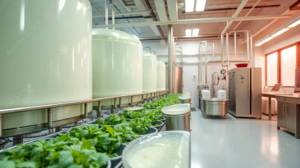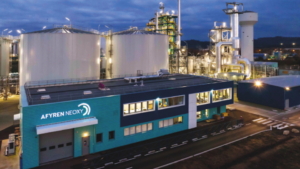
The European Alliance for the Bioeconomy wants to bring back economic growth
Now that US President Donald Trump has loudly announced his intention to withdraw from the Paris climate targets and refocus the US economy on fossil fuel production, Europe, which is still a leader in the bioeconomy, is sensing an opportunity. A new cluster alliance of 14 production sites wants to advance the high-tech bioeconomy.
In order to strengthen Europe’s competitiveness and resilience, the 14 founding members of the European Bioeconomy Clusters’ Alliance want to join forces and accelerate the commercialisation of sustainable biotechnological production processes. According to its Work Programme 2025, the EU Commission is planning a Bioeconomy Act that aims to leverage the potential of the circular bioeconomy. To this end, the founding members Bioeconomy Cluster (Slovakia), Bioeconomy For Change (B4C, France), CluBE (Greece), Cluster industrielle Biotechnologie e.V. (CLIB, Germany), Corporación Tecnológica de Andalucía (CTA, Spain), Food & Bio Cluster (Denmark), Cluster de Alimentación del Valle del Ebro (Food+i, Spain), Flanders Food (Belgium), the Greek Bioeconomy Council, the Irish Bioeconomy Foundation (IBF), P-bio (Portugal), – SPRING, the Italian cluster for circular bioeconomy, Wagralim, the innovation cluster for agri-food in Wallonia (Belgium) and the World Bioeconomy Association (Finland) launched the alliance in Brussels today.
Non-members of the Alliance are also calling for a rapid expansion of the so-called high-tech bioeconomy, which replaces land- and energy-intensive fossil-based production processes with sustainable circular production processes based on synthetic biology, biotechnology and biomanufacturing. A recent market study conducted by the consultancy firm Systemiq on behalf of the non-profit think tank GFI Europe shows that this strengthens economic resilience and the export economy and creates new jobs, as explained by the German innovation agency SPRIND in a position paper on the government elections in Germany on 23 February.
A study commissioned by GFI Europe estimates the economic potential of plant-, microbial- and cell culture-based production of meat and dairy products in Germany alone at €65bn per year. ‘With sufficient political support, up to 250,000 future-proof jobs could be created in Germany by 2045. By 2030, an annual investment of €260m in the production infrastructure could generate an annual turnover of €25bn – €15bn of which would come from technology and product exports – and create 95,000 new jobs,’ the study concludes.
However, FoodTech is only one sector that should be strategically developed as part of a modern high-tech bioeconomy strategy. According to Synbio expert Thomas Brück, the cosmetics industry will follow in the short term and the transport and energy sectors in the longer term, turning Europe’s structural weaknesses into advantages.
‘We need more innovation centres, investment in large-scale production capacities, a clear commitment from the state to SynBio and a rethink of regulation,’ revealed experts from the German Society for Synthetic Biology (GASB) European Biotechnology. Long-term planning and political support for the strategic reorganisation of industrial production in Europe are important.
However, it would be a mistake to conclude that the USA would neglect the expansion of industrial biotechnology under Trump, as he is in favour with the governors of five states with a strong bioeconomy infrastructure: Wyoming, Maine, Michigan, Indiana and Nebraska. In 2022, both the USA and, one year later, the UK announced investments of US$2bn in the high-tech bioeconomy. In view of the EU’s current difficult financial situation, it is still unclear what budget French Executive Vice President Stéphane Séjourné will announce when he will present the EU Bioeconomy Act for the establishment of a high-tech bioeconomy. As innovative SMEs will have to scale up their processes to show feasibility at industrial scale of 100,000+ litres, public and private funding is needed to switch fossil-based sectors to a sustainable biotech-based economy.


 BIOCOM / aminul788 - Adobe Stock
BIOCOM / aminul788 - Adobe Stock adobe.stock.com - Cathy
adobe.stock.com - Cathy Afyren Group
Afyren Group